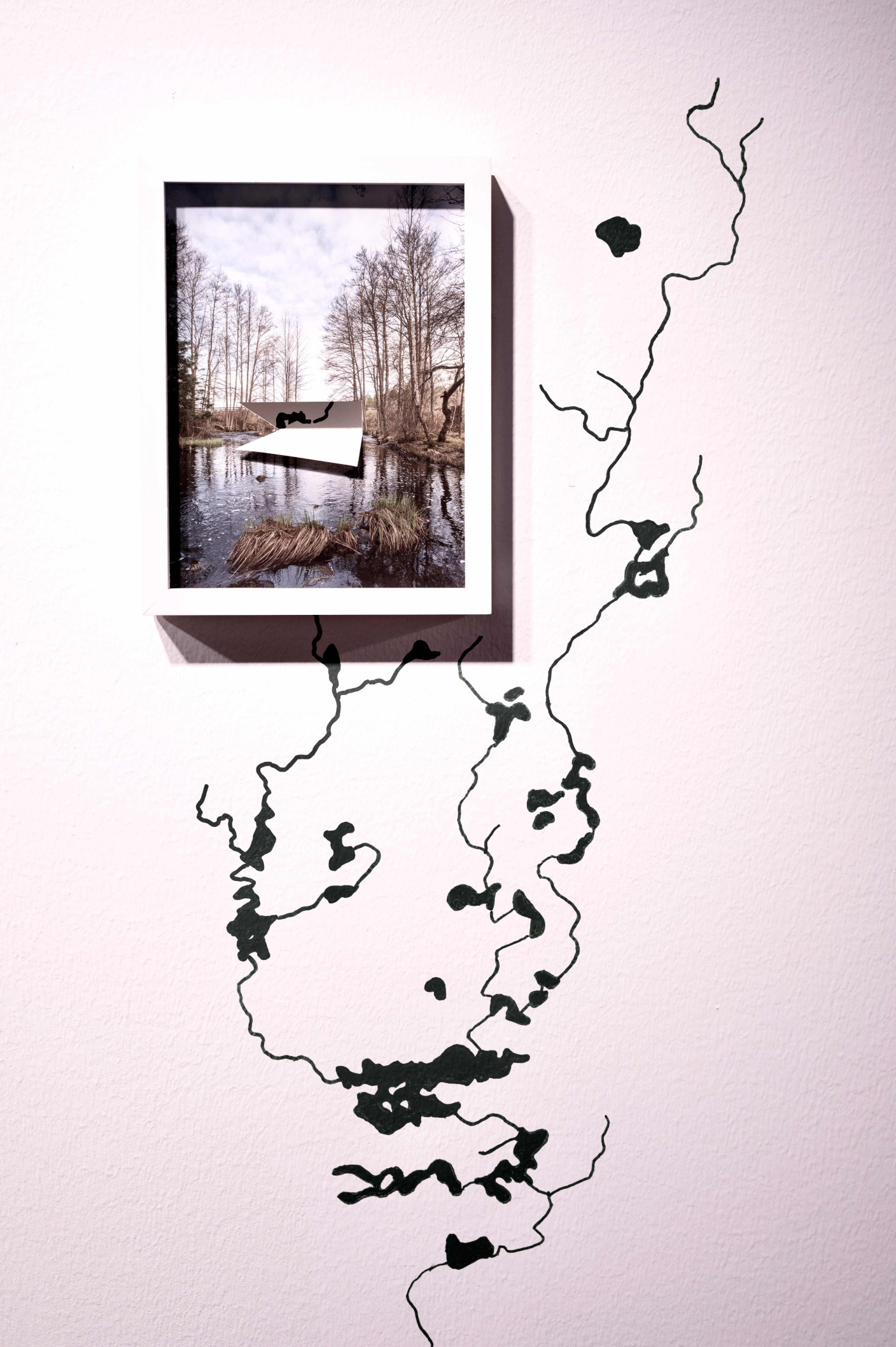The Collection—Recent Acquisitions—Undamming Rivers Cooking Sections
13 June 2024—6 January 2025
Exhibitions
Floor 3
Undamming Rivers
Cooking Sections, 2022
Hydropower dams are river barriers built in the thousands throughout Sweden during the 20th century, especially in Sápmi, uprooting long-established ways of living with rivers. Most of the electricity produced by these dams is fed to industries or the more densely populated areas in the south. Nonetheless, many dams are redundant, inefficient or obsolete, blocking water and sediments from their natural flow. This severely disrupts the yearly salmon migration upstream, where the fish bring sea nutrients to inland forests and peoples. Salmon ladders, hatchery breeding programmes and compensatory smolt release schemes are temporary fixes, contributing to both river and fish extinction. Only six of the historic 28 salmon rivers in Sweden remain undammed: Kalixälven, Råneåälven, Kågeälven, Byskeälven, Hornån and Lögdeälven.
Undamming Rivers is a call for action, a process of infrastructural removal—an effort to amplify the ongoing attempts to dismantle such obstacles. The installation features 36 hydropower dams obstructing salmon rivers along the Baltic coast, photographed in 2022. Despite the government’s recent Nationell prövningsplan (national hydropower relicensing plan) requesting every hydropower dam lacking modern operating permits to apply for a new licence to justify its permanence, the measure has not achieved its ambition. As of summer 2024, the end of such concessions, which were initially likely to cause a wave of redundant dam removals, has been put on hold until 2025 due to the global “energy crisis.” Even if scheduled for demolition, many river barriers are still stuck in administrative or judicial processes, perpetuating the ongoing struggle, while others are extended, updated or reinforced—solidifying their presence and the continuous blockage of the Baltic’s last remaining salmon rivers.
About the artists
Cooking Sections examines the systems that organise the world through food. Using site-responsive installation, performance and video, they explore the overlapping boundaries between art, architecture, ecology and geopolitics. Established in London in 2013 by Daniel Fernández Pascual and Alon Schwabe, their practice uses food as a lens and a tool to observe landscapes in transformation. They have worked on multiple iterations of the long-term site-responsive CLIMAVORE project since 2015, exploring how to eat as humans change climates. In 2016 they opened The Empire Remains Shop.
Their work has been exhibited at Tate Britain, Serpentine Galleries, SALT, Bonniers Konsthall, Lafayette Anticipations, Grand Union, Carnegie Museum of Art, Royal Botanic Garden Edinburgh, Atlas Arts, HKW, SPACES, Storefront for Art and Architecture; the Taipei Biennial, 58th Venice Biennale, Istanbul Biennial, Cleveland Triennial, BAS9, Shanghai Biennial, Los Angeles Public Art Triennial, Sharjah Architecture Triennial, Sharjah Art Biennial, Performa17, Manifesta12, and New Orleans Triennial among others. They have been residents at Headlands Center for the Arts, California; Fogo Island Arts; and The Politics of Food at Delfina Foundation, London. They were guest professors at the Academy of Fine Arts, Munich in 2020-21. They are Senior Research Fellows and Principal Investigators at CLIMAVORE x Jameel at the RCA, London. Since 2023 they are also Fellows at the Canadian Institute for Advanced Research.
Cooking Sections were nominated for the Turner Prize in 2021. They were awarded the Special Prize at the 2019 Future Generation Art Prize and were nominated for the Visible Award for socially-engaged practices. Daniel is the recipient of the 2020 Harvard GSD Wheelwright Prize for Being Shellfish. They have published 3 books: The Empire Remains Shop (2018), Salmon: A Red Herring (2020), and Offsetted (2022).
Undamming Rivers was commissioned by Bonniers Konsthall in 2022. It is part of the collection of Kin Museum of Contemporary Art.
